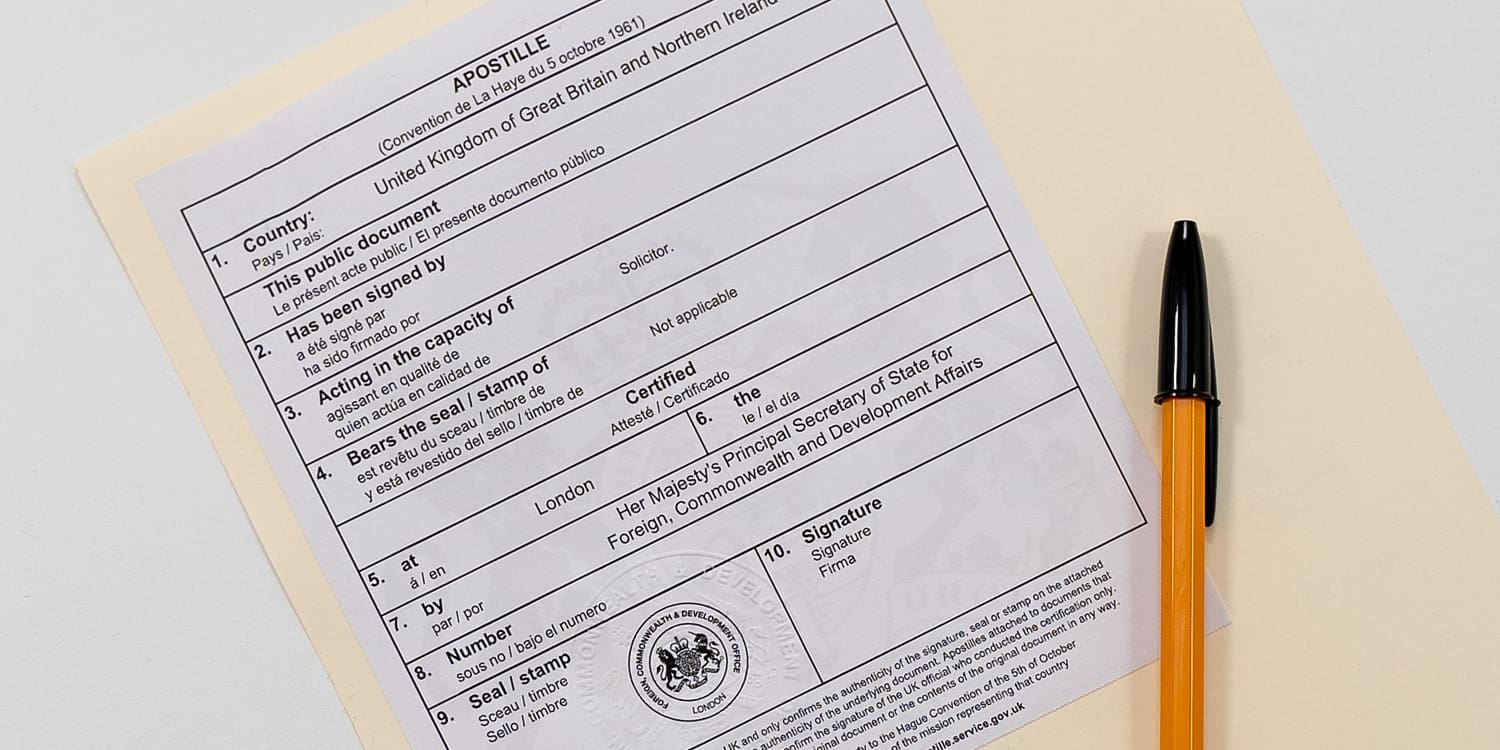Navigating the world of international document authentication can often be confusing. One common question that arises is: do apostilles expire? Understanding the validity and duration of apostilles is crucial for anyone dealing with international legal, business, or personal documents.
In this article, we want to answer this question, as well as explore what an apostille is, its validity, and practical considerations for using apostilled documents effectively.
You may also like: Can a notary apostille a document?
Do apostilles expire?
The straightforward answer to the question is no – apostilles themselves do not expire. Once issued, an apostille certificate is permanently attached to the document it certifies. The authentication provided by the apostille is intended to be valid indefinitely.

However, there are important considerations to bear in mind.
While an apostille does not expire, the underlying document might. For example, power of attorney, court documents, and certain contracts may have a defined validity period. Birth certificates and marriage licenses generally remain valid indefinitely, but criminal background checks or medical reports may be valid for only a limited time.
Another important factor is that different countries have varying requirements regarding the acceptance of apostilled documents. Some countries might only accept documents that have been apostilled within a certain timeframe – typically six months to a year. This is not because the apostille expires, but due to local regulations and administrative practices.
The type of document being apostilled can also influence its practical validity. Educational documents, like diplomas and transcripts, typically remain valid indefinitely, while health documents, such as medical certificates or vaccination records, may need to be recent to be accepted.
What is an apostille?
In case you’re still not familiar with the term, an apostille is a form of authentication issued to documents for use in countries that participate in the Hague Convention of 1961, also known as the Apostille Convention.
This international treaty, established to facilitate the process of verifying documents, simplifies the legalization of documents for use in foreign jurisdictions by introducing a standard certification known as an apostille.
An apostille certifies several three key aspects of a document:
- The authenticity of the signature on the document: This means that the signature is confirmed to be genuine and not forged. It verifies that the person who signed the document is indeed who they claim to be.
- The capacity in which the person signing the document has acted: This confirms the authority of the signatory, ensuring that the person had the legal power or official capacity to sign the document. For instance, it can certify that a signatory was acting as a company representative, a notary public, or a government official at the time of signing.
- The identity of the seal or stamp that the document bears: This aspect verifies the authenticity of any seal or stamp on the document, ensuring that it belongs to a recognized authority and is not fraudulent. This is particularly important for documents that bear official stamps from governmental or legal bodies.
By eliminating the need for multiple certifications by different authorities, apostilles streamline international document processing.
Traditionally, for a document to be recognized abroad, it had to go through a lengthy chain of authentications by various authorities, often including local, regional, and national levels, followed by the consulate or embassy of the destination country.
With the introduction of apostilles, the process is significantly simplified. Once a document receives an apostille from the designated competent authority in its country of origin, it is recognized by all other member countries of the Hague Convention.
4 professional tips for using apostilles

Check local requirements
Before submitting an apostilled document to a foreign authority, check their specific requirements. This includes understanding any time limits they may impose on the acceptance of documents. Contact the relevant embassy or consulate for precise guidelines.
Renew documents if necessary
If the underlying document is time-sensitive or has a limited validity period, ensure it is renewed or updated as required. Once updated, you might need to get a new apostille for the renewed document. For example, if a criminal record check is only valid for six months, obtain a new check and a new apostille when needed.
Keep copies
Always keep copies of your apostilled documents. In case of loss or damage, having a copy can help in obtaining a new apostille more efficiently. Digital copies can also be useful for quick reference or preliminary submissions.
Consult legal experts
When in doubt, consult with legal experts or authorities in the destination country to ensure compliance with their specific requirements. This can save time and avoid potential legal complications. Legal professionals specializing in international law can provide valuable insights into the nuances of document acceptance in different jurisdictions.
Where to get an apostille?
An apostille can be obtained from a designated government authority in the country where the document was issued.
Each country that is a party to the Hague Apostille Convention designates specific authorities to issue apostilles. These are usually government departments, such as the Ministry of Foreign Affairs, Ministry of Justice, or specific regional offices.
Read also: Where to find notary services (the ones you need)
For example, in the United States, the competent authority is usually the Secretary of State for the state where the document was issued. In the UK, the Foreign, Commonwealth & Development Office (FCDO) handles apostilles.

The best way to make sure all your documents are in order, and you know exactly where to send them, is to get the help of an apostille near you. And if you happen to be around Orlando and Central Florida, we here at Mobile Notary Orlando are ready to help!
We are available 24/7, 7 days a week, and ready to go wherever you are in our service area. Get in contact through our email (dossantosnotary@gmail.com) or phone number (407) 765-0454.






